in theory
In Theory, New in Ceasefire - Friday, January 7, 2011 7:37 - 16 Comments
In Theory Giorgio Agamben: the state and the concentration camp
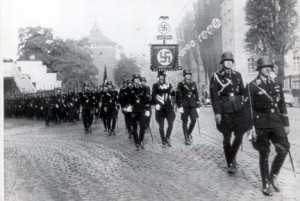
In a detailed and penetrating analysis - the first of two parts - political theorist Andrew Robinson looks at the work of the Italian philosopher Giorgio Agamben, who posits that states are inseparable from concentration camps, building their sovereignty on a rejection of the value of human life.
In Theory, New in Ceasefire - Friday, November 19, 2010 7:56 - 2 Comments
In Theory Think different: Think local
 In this week's 'In Theory' column, political theorist Andrew Robinson looks at the concept of local and indigenous knowledge. As Robinson argues, the West, in all its modern technological glory, might not be as 'knowledgeable' as it think it is.
In this week's 'In Theory' column, political theorist Andrew Robinson looks at the concept of local and indigenous knowledge. As Robinson argues, the West, in all its modern technological glory, might not be as 'knowledgeable' as it think it is.
In Theory, New in Ceasefire, Politics - Friday, November 5, 2010 0:00 - 2 Comments
In Theory Behind enemy (thought) lines
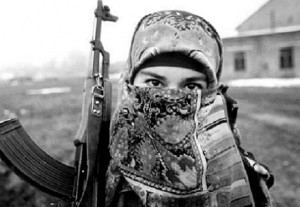 In a new essay, political theorist Andrew Robinson looks at the arguments of the 'other side', that of policy makers and military planners. In particular, Robinson examines the establishment approach to one central concept: asymetrical war.
In a new essay, political theorist Andrew Robinson looks at the arguments of the 'other side', that of policy makers and military planners. In particular, Robinson examines the establishment approach to one central concept: asymetrical war.
In Theory, New in Ceasefire - Friday, October 22, 2010 15:21 - 11 Comments
In Theory – Herbert Marcuse: One Dimensional Man?
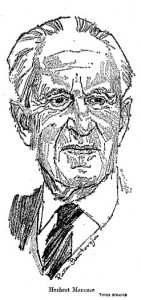 Marcuse's One-Dimensional Man was written in 1962, but much of it reads as if it could have been written today. In a forensic and robust re-assessment, political theorist Andrew Robinson highlights the merits, and lacunae, of this pivotal work.
Marcuse's One-Dimensional Man was written in 1962, but much of it reads as if it could have been written today. In a forensic and robust re-assessment, political theorist Andrew Robinson highlights the merits, and lacunae, of this pivotal work.
In Theory, New in Ceasefire - Friday, October 8, 2010 6:05 - 10 Comments
In Theory">Autonomism: The future of activism? In Theory
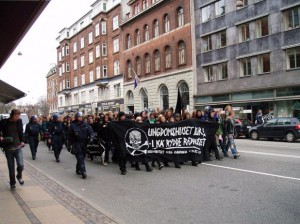 One of the major influences on contemporary activism has been European Autonomism, whose mark was present in the 2008 uprising in Greece, the Ungdomshuset revolt in Denmark, as well as the wave of summit protests around the world. Political theorist Andrew Robinson traces its origins and development, and explains why it could be the future of activism.
One of the major influences on contemporary activism has been European Autonomism, whose mark was present in the 2008 uprising in Greece, the Ungdomshuset revolt in Denmark, as well as the wave of summit protests around the world. Political theorist Andrew Robinson traces its origins and development, and explains why it could be the future of activism.
Columns, In Theory - Thursday, September 23, 2010 0:05 - 5 Comments
In Theory – Karl Marx’s fetishisms
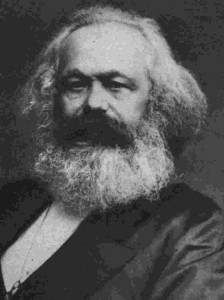 We are surrounded by objects which have (at least potentially) the status of commodities, but what is this status and how does it relate to social life? In this week's column, political theorist Andrew Robinson explores the most famous and influential response to this question: Karl Marx’s theory of commodity fetishism. As Robinson shows, far from being an arid theoretical topic, commodity fetishism is, according to Marx himself, the most universal expression of capitalism.
We are surrounded by objects which have (at least potentially) the status of commodities, but what is this status and how does it relate to social life? In this week's column, political theorist Andrew Robinson explores the most famous and influential response to this question: Karl Marx’s theory of commodity fetishism. As Robinson shows, far from being an arid theoretical topic, commodity fetishism is, according to Marx himself, the most universal expression of capitalism.
Columns, Ideas, In Theory - Friday, September 10, 2010 3:25 - 11 Comments
In Theory Why Deleuze (still) matters: States, war-machines and radical transformation
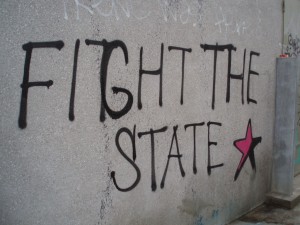 In the latest of his 'In Theory' columns, political theorist Andrew Robinson examines a crucial segment within the extensive and monumental legacy of Giles Deleuze. In his piece, Robinson shows how Deleuze's own subversion of theoretical assumptions has been often misread, and misapplied, by disciples and foes alike. In particular, Robinson addresses one of Deleuze's central concepts, that of the 'War Machine'.
In the latest of his 'In Theory' columns, political theorist Andrew Robinson examines a crucial segment within the extensive and monumental legacy of Giles Deleuze. In his piece, Robinson shows how Deleuze's own subversion of theoretical assumptions has been often misread, and misapplied, by disciples and foes alike. In particular, Robinson addresses one of Deleuze's central concepts, that of the 'War Machine'.
Columns, Features, Ideas, In Theory - Friday, August 13, 2010 13:30 - 4 Comments
In Theory We come in peace – shoot to kill: On the perils of peacekeeping
The creation of the UN, sixty years ago, has introduced the concept of "international peacekeeping" into the public lexicon. The UN peacekeeping missions are now regular features of news bulletins from conflict zones. And yet, both in its theoretical underpinnings and its practical manifestations, peacekeeping remains a highly problematic idea. Political theorist Andrew Robinson presents the many issues surrounding the idea of peacekeeping, and conducts an impassioned and lucid analysis of how peacekeeping efforts often get things wrong, and what needs to be done to set them right.Columns, Ideas, In Theory - Friday, August 6, 2010 15:53 - 9 Comments
In Theory Anarchism, war and the state
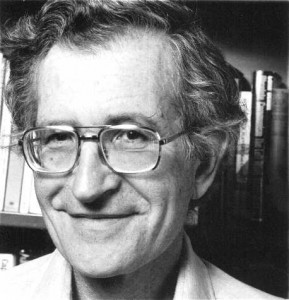 Of the many movements and "isms" that have emerged in the past two centuries, none have had the run of stigma, mischaracterisation and sheer venom thrown at it as has the idea of Anarchism. Some use the term as shorthand for political violence, others for nihilistic rejection of societal coherence. Even those who admire its general principles often find themselves in conflict over how those principles are to manifest themselves in the world of reality. In a brilliant and thorough tour d'horizon, Ceasefire columnist Andrew Robinson looks at the development of the Anarchist response to war and the state. He uncovers some striking affinities as well as the nuances in difference within this widely variant (and much maligned) field of thought and offers a neat encapsulation of the major strands involved
Of the many movements and "isms" that have emerged in the past two centuries, none have had the run of stigma, mischaracterisation and sheer venom thrown at it as has the idea of Anarchism. Some use the term as shorthand for political violence, others for nihilistic rejection of societal coherence. Even those who admire its general principles often find themselves in conflict over how those principles are to manifest themselves in the world of reality. In a brilliant and thorough tour d'horizon, Ceasefire columnist Andrew Robinson looks at the development of the Anarchist response to war and the state. He uncovers some striking affinities as well as the nuances in difference within this widely variant (and much maligned) field of thought and offers a neat encapsulation of the major strands involved

